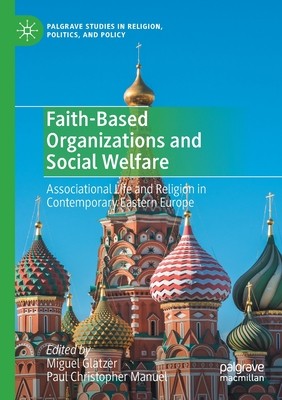
- Išsiųsime per 10–14 d.d.
- Leidėjas: Palgrave Macmillan
- ISBN-10: 303044709X
- ISBN-13: 9783030447090
- Formatas: 14.8 x 21 x 1.6 cm, minkšti viršeliai
- Kalba: Anglų
- Extra -15 % nuolaida šiai knygai su kodu: ENG15
Faith-Based Organizations and Social Welfare + nemokamas atvežimas! | knygos.lt
Atsiliepimai
Aprašymas
This volume seeks to understand the role and function of religious-based organizations in strengthening associational life through the provision of social services, thereby legitimizing a new role for faith in the formerly secular public sphere. Specifically, we explore how a church in a postcommunist setting, during periods of economic growth and recession in the wake of transitions to capitalism, and with varied numbers of adherents, might contribute to welfare services in a new political regime with freedom of religion. Put another way, what new pressures would be placed on the secular welfare state if religious organizations (Orthodox, Catholic, Protestant, Muslim, others) simply stopped offering their services? By examining public perceptions of the church, changing dynamics of religiosity, and church-state-civil society relations, the volume places these issues in context.
EXTRA 15 % nuolaida su kodu: ENG15
Akcija baigiasi už 17:12:42
Nuolaidos kodas galioja perkant nuo 10 €. Nuolaidos nesumuojamos.

- Leidėjas: Palgrave Macmillan
- ISBN-10: 303044709X
- ISBN-13: 9783030447090
- Formatas: 14.8 x 21 x 1.6 cm, minkšti viršeliai
- Kalba: Anglų
This volume seeks to understand the role and function of religious-based organizations in strengthening associational life through the provision of social services, thereby legitimizing a new role for faith in the formerly secular public sphere. Specifically, we explore how a church in a postcommunist setting, during periods of economic growth and recession in the wake of transitions to capitalism, and with varied numbers of adherents, might contribute to welfare services in a new political regime with freedom of religion. Put another way, what new pressures would be placed on the secular welfare state if religious organizations (Orthodox, Catholic, Protestant, Muslim, others) simply stopped offering their services? By examining public perceptions of the church, changing dynamics of religiosity, and church-state-civil society relations, the volume places these issues in context.




Atsiliepimai